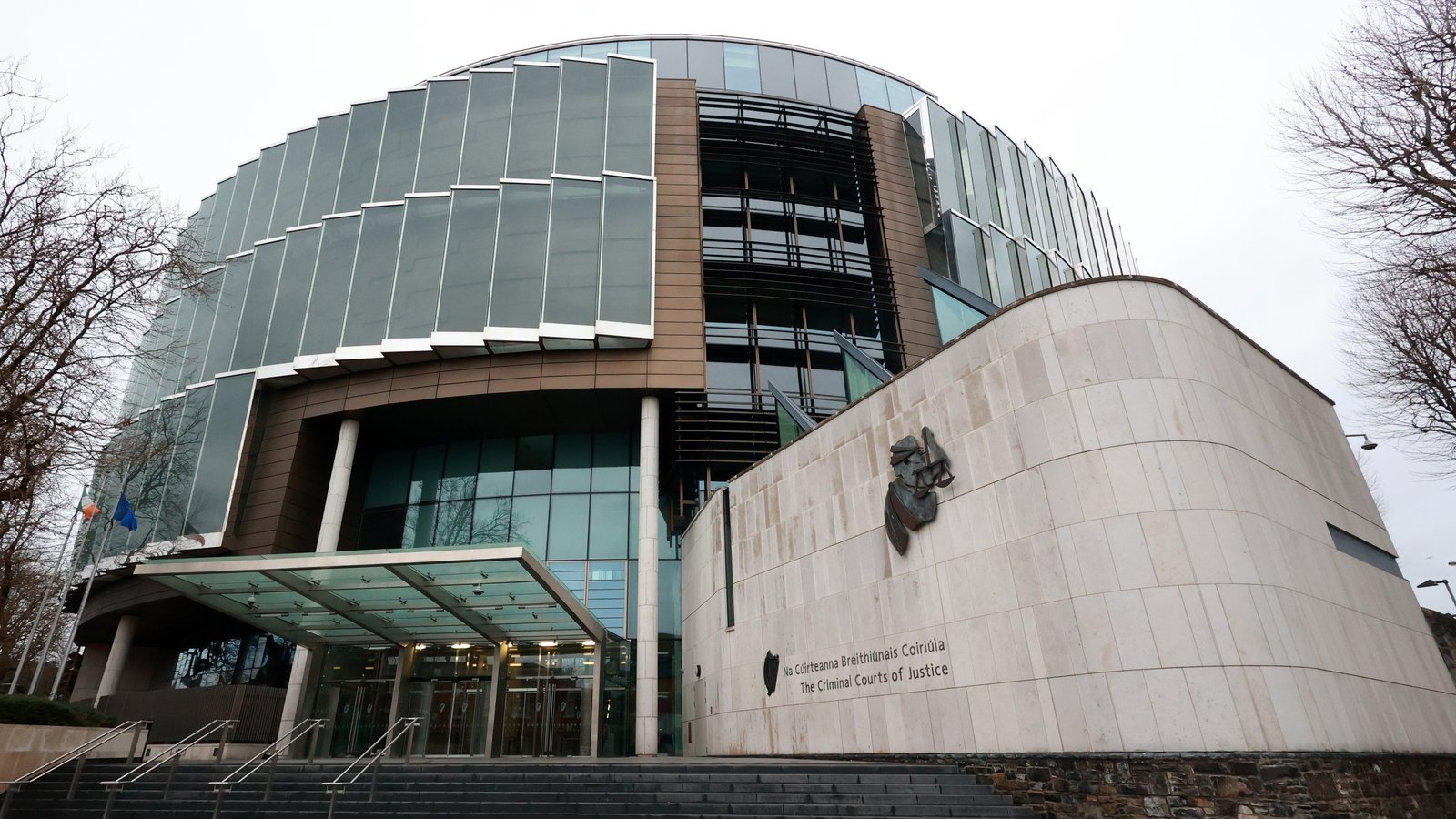All eyes on six states and court dates in US for 2024
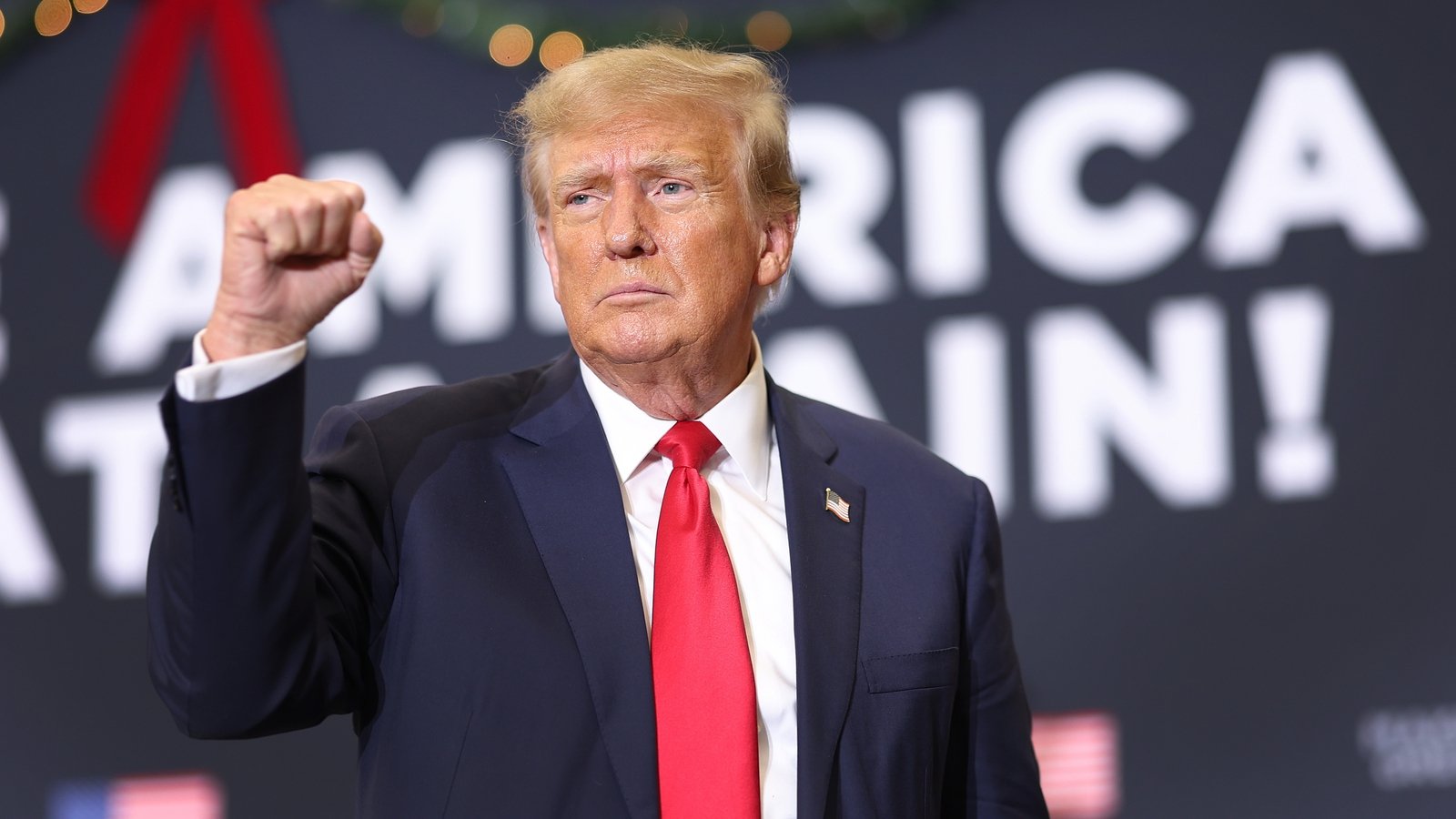
In the middle of January, a couple of weeks from now, the first act in the US presidential election takes place, with the Republican Party’s Iowa Caucuses.
Yes, we really are that close to the next presidential election.
And right now, Donald Trump is within a whisker of winning the White House again.
Despite – or perhaps because of – all the legal cases the former president is now involved in.
The first primary election to decide the party’s challenger to Joe Biden will be in New Hampshire on 25 January.
5 March is “Super Tuesday” when a clutch of states representing one-third of the delegates for the selection convention hold their primaries.
Shortly after the Taoiseach returns from his visit to the White House for St Patrick’s Day, half the delegate votes for the convention will have been decided.
Mr Trump could well have the nomination in the bag by then.
Of the remaining challengers, the one to watch is Nikki Haley, the former South Carolina governor.
If she overhauls long-time number two contender Ron De Santis (the Governor of Florida), and Mr Trump’s tally is significantly worse than the opinions polls all suggest right now, then there might be the makings of a contest within the party.
But the conventional wisdom (much of it constructed by Mr Trump’s uber-confident PR) is that Mr Trump will be so far ahead of the others that who comes second won’t make much difference.
Unless the burger-loving former president’s health gives out, and he can’t complete the campaign.
In that case the Republican Party gets interesting again, with several polls over several months indicating that in a straight fight with Mr Biden, Nikki Haley would win and become Americas first female President.
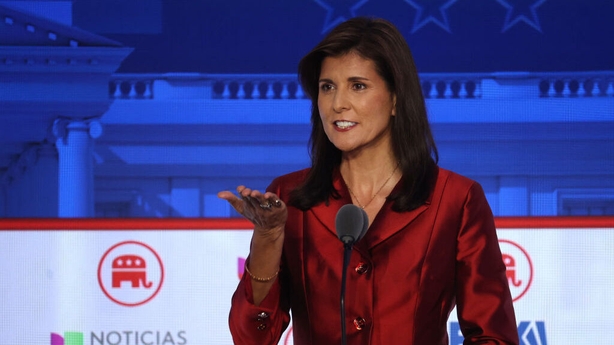
But that’s all theoretical. For the moment the race for the White House is the one the people don’t want: a re-run of Biden v Trump.
In poll after poll, Americans have asked not to have to chose between these two old men.
They want younger people, people in their mid-fifties, like the vast majority of US Presidents throughout history, to contest this election.
They got a tease of what such a campaign could be like in November, in a Fox News-hosted debate between actual Republican contender Ron De Santis, and another governor, Gavin Newsome, the Democrat who runs California.
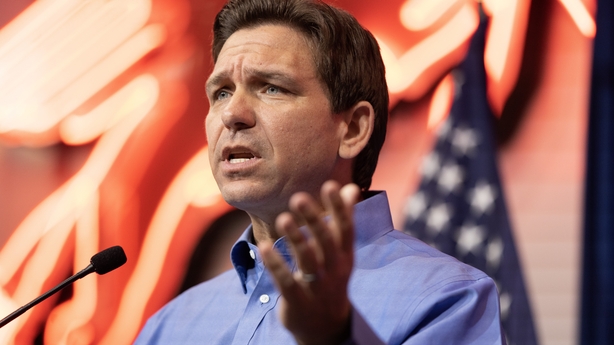
No talk of cognitive impairment, physical frailty or afternoon naps here: just a vigorous display of what might be on offer in 2028.
But right now, that is not what the American people are going to get.
It’s the old guys’ nominations to lose. And a re-run with the same old, same old means another election that will be decided by half-a-dozen swing states, with a mostly tiny margin between the candidates.
Georgia, Arizona, Pennsylvania, Michigan, Nevada, Wisconsin – these are the battleground states.
They are the places that Joe Biden has been visiting relentlessly over the past year, and will continue to do so in the year ahead. Mr Trump likewise.
In 2020 they tipped the balance for Mr Biden, and they are also the states where Mr Trump concentrated his efforts to subvert the election result.

When Fox News called Arizona going against Mr Trump on election night it triggered a sequence of events that has led to a complex racketeering case in Georgia.
Nevada is also taking a case against the “fake electors” in that state.
Michigan saw an alleged plot by a right-wing militia group to kidnap the Democrat governor, Gretchen Whitmer, on the eve of the 2020 election, for which a number of men have been jailed.
Pennsylvania’s senate race was the key swing constituency in last year’s midterm elections, and Democrats laboured hard to ensure an election-denying 6 January participant was selected as the Republican candidate for governor (he lost).
Wisconsin is hosting the Republican National Convention in July (even though Milwaukee is probably too small to host an event of this size, and will be challenged on hotel provision: nevertheless the city council thinks it could bring in $200 million in spending for the city).
In a race of small margins, these things can help sway a few votes one way or the other: after all Mr Biden won Wisconsin by just 20,682 votes
It was an even closer call in Arizona – 10,457. Georgia too was extremely close.
No wonder Mr Trump was on the phone to Brad Raffensperger, the Secretary of State of Georgia, the so-called “perfect” phone call, asking him to find another few votes for him.
The winning margin there was 12,670.
That recording, made public at the time, is now part of pile of evidence in the racketeering case against Mr Trump and eighteen others in Georgia.
Just before Christmas another recording turned up.
The Detroit News obtained recordings of a call Mr Trump and the then-chair of the Republican National Committee, Ronna McDaniel, made to election officials in Michigan, pressuring them not to certify the election results in the state.
Some of them in Wayne County, which includes Detroit, did initially refuse certification, but rowed back and certified the election.
But that came after some drama in which the election officials claimed they were being bullied.
This was the narrow nature of the Biden win – small margins in a handful of states got him over the line. The very states that the “fake elector” scheme targeted.
Instead of accepting the outcomes of each states vote – and the assignment of electoral college voters to Joe Biden – Trump operatives prepared “alternative” certificates of election and “alternative” lists of delegates to the electoral college – ones who would vote for Donald Trump, not Mr Biden.
The states involved in the “fake electors” scheme were the six swing states that were crucial in 2016, 2020 and will be again in November -Arizona, Georgia, Michigan, Nevada, Pennsylvania and Wisconsin.
And one more for good measure: New Mexico.
Those certificates were submitted to Congress in the hope that then-vice president Mike Pence would count them – not the real elector vote – when the joint session of Congress formally ratified the vote outcome on 6 January 2021.
Mr Pence didn’t play ball. A mob stormed the Capitol building, and the formal counting of the votes was delayed.
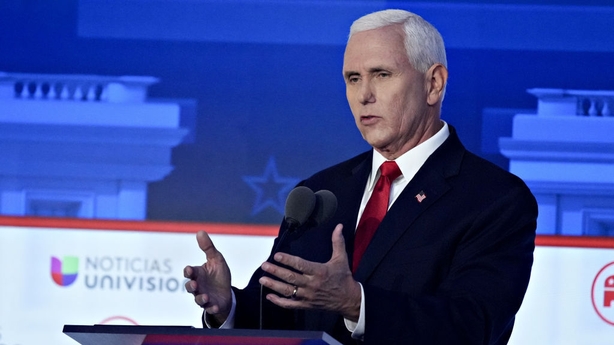
The riot at the Capitol was the tip of an iceberg, according to the report of the House of Representatives January 6 Committee, and the Georgia and DC criminal cases.
Never mind the fact that Mr Biden won seven million more votes than Trump in the national poll 2020: the margins that count are in the swing states, where Biden won 313,253 more votes than Trump.
Or put another way, it was the combined 44,000 votes in Arizona, Georgia and Wisconsin that were the difference between a Biden victory and an electoral college tie with Trump back in 2020.
The recording of that phone call in Georgia is one of many events that have come back to haunt Mr Trump – though so far they have not impacted his performance in opinion polls.
They have, however, had catastrophic effects on the lives and careers of others. Most of them are Trump loyalists.
The most spectacular fall has been that of Rudy Giuliani, the former mayor of New York and one-time presidential candidate.
He was more latterly Donald Trump’s personal lawyer/fixer.
Just before Christmas he lost a defamation case taken by two women who were election workers in Georgia in 2020.
The court awarded them damages of $148 million dollars.
On the way out of the court he maintained his claims were true, the next day he filed for bankruptcy.
Not only does he owe the whopping defamation award, the former lawyer (he has been debarred in some key jurisdictions for spreading election lies) owes his own lawyers $3.5 million, $1 million to the taxman, and $30,000 in phone bills.
He is also being sued for sexual harassment by his former personal assistant, and he is a criminal defendant in the Georgia racketeering case.
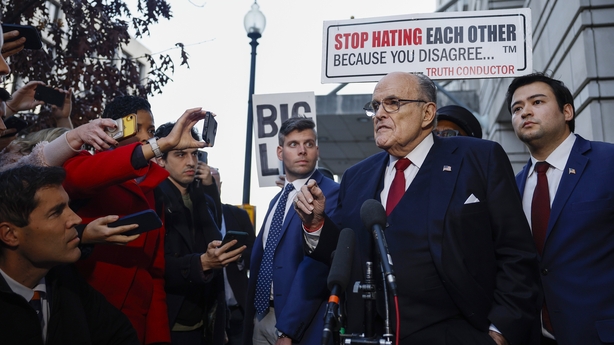
In that case two people who were central to the fake electors plot to undermine the result of the 2020 election have cut plea deals with the DA, Fani Willis, that will see them receive a slap-on-the-wrist punishment in return for testifying against Mr Trump and the other co-accused.
Ken Chesboro, a lawyer who came up with the legal theory behind the attempt, and Sidney Powell, another lawyer who played a prominent public role (alongside Mr Giuliani) in promoting the plan in public are now working with the DA’s office, having seen the evidence against them and deciding they were not going to risk jail for Donald Trump.
They’ll avoid jail, but their legal careers are in tatters.
A similar calculus may now be made by Mark Meadows, perhaps the key potential witness in this affair.
As White House chief of staff, everything that moved came across his desk – including the events of 6 January 2021.
He has just lost an attempt to have his case moved out of Georgia to a federal court, claiming he was acting as a federal official, and was therefore immune from prosecution by a state.
The Federal Appeals Court rejected this claim, saying he was a former official, and the charges he was up on – election interference and plotting to subvert the result of the 2020 election – were not the business of government officials, and so not protected by statute.
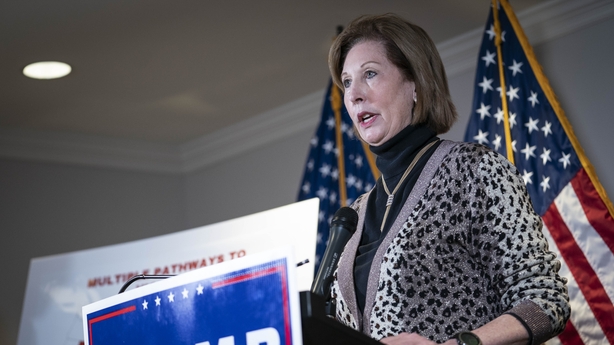
He may consider following Ms Powell and Mr Chesboro (and two others) in cutting a deal in Georgia – though the DA there is reported to be uninterested in doing deals with Mr Meadows, Mr Trump and Mr Giuliani, and is keen to get on with the trial.
Mr Meadows is reported to have agreed an immunity from prosecution deal with Special Prosecutor Jack Smith in the Washington DC election interference trial, and is reported to have testified before a grand jury against Mr Trump.
Donald Trump himself has argued that he is immune from prosecution because he was president at the time of the alleged offenses.
It’s a main plank of his defence in the federal election interference case due to start in Washington on 4 March.
That claim was denied by the trial judge, and Mr Trump’s lawyers appealed it to the DC Appeals Court.
Special Prosecutor Jack Smith saw the move as an effort to delay the start of the trial.
He immediately lodged a claim at the Supreme Court, demanding that it move to swiftly decide the matter.
Effectively he said that the highest court in the land has to decide now if Mr Trump is immune from prosecution – in which case the case against him collapses immediately – or he is not immune and the case can proceed as planned in early March.
On the Friday before Christmas, the Supreme Court made its decision.
It issued a one-line notice saying it was denying Mr Smiths motion.
The Supreme Court will not hear the immunity argument before the DC Appeals Court has decided the matter.
That court is due to hold an expedited hearing of the case on 9 January.
It looks certain that the result of that case will then be appealed to the Supreme Court, which will have the benefit of a reasoned opinion to work from.
But how fast will that happen? And will it push back the start of the DC case, set for jury selection to begin on 4 March?
Mr Trump is facing just four charges and his trial alone is expected to take six weeks.
Everyone is keenly aware that time is of the essence.
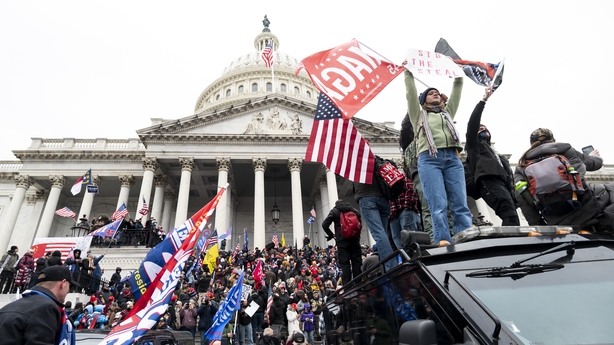
Mr Trump wants to string the legal proceedings out as long as possible – if he wins the election, he can cancel most of them (or pardon himself in the federal cases).
The prosecutors want the case in court as soon as possible. And there are various election dates that also move the clock forward and put pressure on courts to make decisions.
Case in point is another decision likely heading for the US Supreme court – the decision of the Colorado Supreme Court to ban Mr Trump from appearing on the ballot in that state because the court found that he had taken part in an insurrection against the United States, and was therefore barred from holding federal office under the Fourteenth Amendment (brought in to keep civil war rebels out of federal posts).
The action was brought by Republican activists.
Mr Trump lost Colorado in both 2016 and 2020, so it probably wouldn’t make much difference to the electoral outcome on its own, but it’s the first time a court has accepted this argument (three other states have rejected it, several more are yet to decide).
Most legal analysts here offer the snap opinion that the Supreme Court will allow Mr Trump to go on the ballot for the election – letting the people decide who is a fit person to stand, not the courts.
But they also think the Supreme Court will say Mr Trump is not immune from prosecution: that no-one is above the law.
Three of the judges of the US Supreme Court were appointed by Donald Trump, but most of the finger pointing by Democrats is aimed at Clarence Thomas, a long-standing conservative member of the court.
Critics point to the activities of his wife, Ginni, an active participant in the “stop the steal” movement that wanted to keep Mr Trump in power after the 2020 election.
The 6 January committee unearthed emails and tests she had sent to Mark Meadows, urging him to overturn the 2020 election result – and correspondence with John Eastman, a key figure in the “fake electors” scheme.
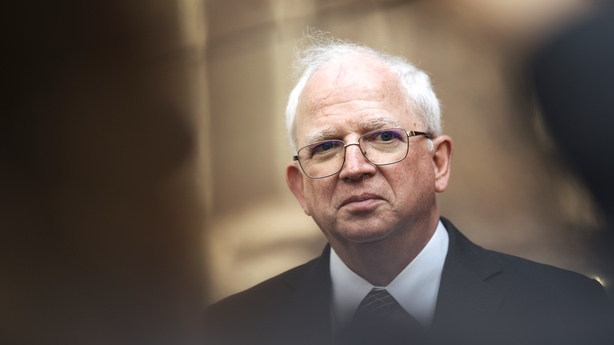
Mr Eastman is also one of Mr Trumps co-accused in the racketeering case in Georgia.
He is also a former law clerk for Clarence Thomas.
Justice Thomas took no part in considering a Supreme Court case in October, in which Mr Eastman’s lawyers failed to get an appeal hearing in their efforts to prevent him having to hand emails to congressional investigators.
No reason was stated for his non-involvement in the case.
But congressional democrats have long been calling for Justice Thomas to recuse himself from hearing all cases related to the 2020 election and 6 January because of his wife’s activities.
With all the cases against Mr Trump and his various co-accused, and all the motions and appeals they are throwing off, this issue will come to the fore sooner or later in the months ahead.
For this election year sees politics and the law intertwined in a way that has never been seen before in the history of the United States.
No election has been so contingent on the outcome of court cases and rulings.
The range of outcomes spans a swift collapse of the cases against Mr Trump after a Supreme Court ruling or two, all the way to the Republican nominee finishing the campaign from a prison cell.
In between a kaleidoscope of legal outcomes that may – or may not – impact on the electoral outcome.
An outcome that will likely be decided by tiny margins in just six states.



